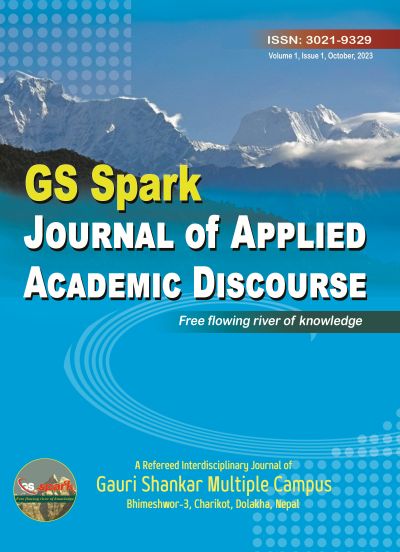Corruption Trend Analysis and Problem in Nepal
Keywords:
corruption, descriptive, good governance, public policyAbstract
Corruption involves the misuse of entrusted authority for personal gain or the inappropriate utilization of public resources for private interests. This unethical practice undermines social, political, and economic progress and erodes trust in public institutions. This article aims to examine the corruption scenario in Nepal, which is a major obstacle to overall development. The study adopts a descriptive and analytical approach, drawing data mainly from various secondary resources. It explores several corruption scandals directly linked to Nepal's good governance and raises crucial questions regarding government accountability, the rule of law, social justice, and public policy. Additionally, this paper provides a concise overview of the theoretical framework surrounding good governance and public policy, emphasizing the long-term implications of weak governance on the federal democratic system and poverty reduction efforts. Applying descriptive and bivariate analysis, it draws a level, trend, and pattern of corruption and improper conduct using the disaggregated level data. The study reveals that corruption is multi-dimensional, widely prevalent, and institutionalized in Nepal. Corruption is intrinsically tied to politics, and it has vastly increased as democratization, economic liberalization, educational levels, personal wealth, geographic mobility, and life expectancy have also all increased. There are fierce moral contests about corruption within Nepal, and these contests often focus on what the proper locus of reciprocity is and on what counts as negative reciprocity. The study highlights the importance of good governance and public policy in addressing corruption and emphasizes the long-term implications of weak governance on the federal democratic system and poverty reduction efforts. The study calls for increased government accountability, the rule of law, and social justice to combat corruption in Nepal.
Downloads
Downloads
Published
How to Cite
Issue
Section
License
Copyright (c) 2023 The Author(s)

This work is licensed under a Creative Commons Attribution-NonCommercial 4.0 International License.
This license enables reusers to distribute, remix, adapt, and build upon the material in any medium or format for noncommercial purposes only, and only so long as attribution is given to the creator.




